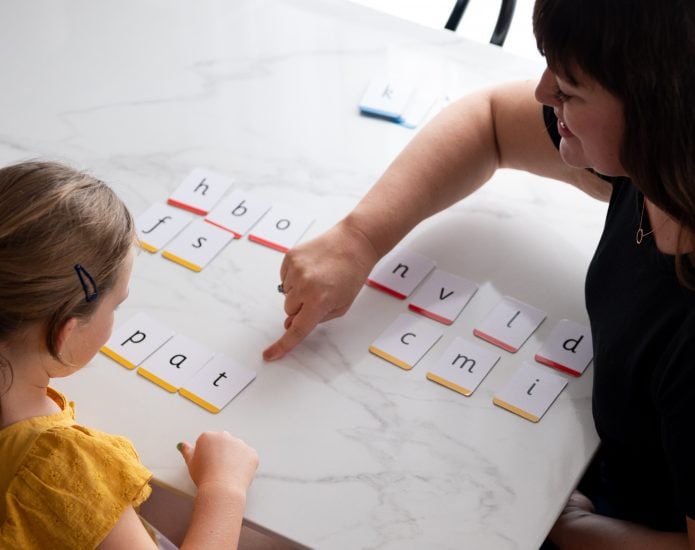
While many families are used to face-to-face support for their child, whether through speech or occupational therapy, psychological therapy or specialist learning programs, telehealth or online learning support can often seem quite daunting, too technological or just one of those things that goes in the ‘too hard’ basket.
However, research shows that telehealth, teletherapy or online learning sessions are also an effective and flexible way for professionals to work with children and their families. This is particularly true when face-to-face support isn’t available, due to geographical isolation or situations such as the current COVID-19 crisis. Families in regional and remote communities in Australia have been benefiting from telehealth services for many years, to ensure their children can receive the right support for their education, development and mental health needs when it’s not close by.
Right now, when many face-to-face programs are unavailable and families are dealing with the challenges of home-schooling, ongoing support for children with learning difficulties and those struggling to keep up in class is crucial.
How can telehealth and online learning support my child?
Just like face-to-face sessions, online therapy and learning programs can support your child in many different ways:
- Psychology – anxiety, depression, self-esteem, social skills, emotional regulation, coping with change and family issues
- Speech therapy – speech sounds, early language and play skills, understanding and using language, stuttering intervention, social language skills, language for literacy
- Specialist tutoring – reading, writing, spelling, comprehension, dyslexia, dyscalculia, maths, organisation, time management, homework and study strategies
The benefits of telehealth and online learning sessions
The use of online video platforms can allow your child to participate in one-to-one sessions with their therapist or tutor using a computer or tablet, from the comfort of the home. It is a flexible and convenient way to run sessions and provides many new opportunities for professionals to be creative with their program delivery, involve parents in different ways and utilise children’s skills and interests.
In these unsettling times when many children are at home from school and not interacting with people outside of their family as they normally would, seeing a familiar face via video sessions can offer reassurance and consistency. Children also have an opportunity to feel in control of their learning, by using the technology to interact in different ways with their therapist or teacher and engage with resources.
The home environment can be incredibly beneficial for therapy and learning. By removing the stress of travel or the need to meet in a less familiar space, online sessions often create a more relaxed atmosphere, which helps to build a strong relationship with the professional and effectively achieve goals.
Learning skills in the home also supports children to generalise those skills for day-to-day tasks or in familiar situations.
Online sessions can also be beneficial for parents and carers. By being actively involved in sessions, they can learn skills and techniques specifically for use in the home. This can build greater capacity, capabilities and confidence for supporting your child.
How do I prepare for online sessions?
Your therapist or teacher will send an email with the information for the time of your session and how to join. Depending on the type of support, they may ask you to fill out a questionnaire or checklist to understand what you have available in the home, so activities can be tailored to work best with your child. They might also provide resources or a list of items you may need in advance, to ensure you and your child are prepared for the activities in each session.
To ensure your child can benefit fully from online sessions, it’s important that:
- They get ready for the session as if you were leaving the house for a face-to-face appointment
- You discuss the session with your child, so they understand what activities or goals they will be focussing on
- You find a quiet place, with minimal to no distractions
- You avoid sitting your child with a window behind them, so they can be clearly seen
- You ensure other family members are aware of the session and don’t disturb
- There is no heavy internet use in the household during the session, ie. Online gaming, video streaming or music streaming
What technology do I need?
Online sessions don’t require any complicated equipment. All you need is a stable internet connection and a computer, laptop or tablet with a webcam, microphone and speakers – which are usually inbuilt. Your child can use headphones if they feel more comfortable doing so, but it’s optional.
Providers use easy to use video-conferencing software, that is simple for children to get the hang of, and installation of this only takes a minute.
You may also be invited to use document sharing platforms so your therapist or teacher can provide resources, and you can share activities or work your child completes.
Learning Links offers online psychological therapy, speech therapy, and specialist tutoring support. Call us on 1300 003 900 to discuss your child’s needs.
More information about telehealth and online learning:
COVID-19 National Health Plan – MBS Telehealth Services and Increased Practice Incentive Payments



